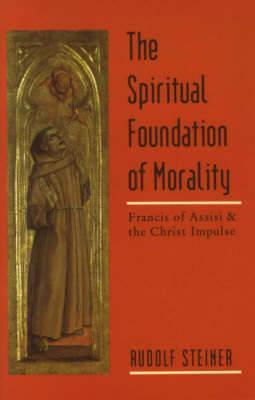Moral preaching cannot establish morality. Only by delving into the hidden secrets of life can we find its moral sources. Humanity has always manifested moral life. In ancient India, for instance, morality lay in devotion to the spirit: in Europe, the cardinal virtue was courage. To understand the relationship between these, however, the evolution of consciousness must be taken into account. Originally, morality was a gift of the gods, a part of human nature, but errors, deviations, a falling away have occurred in the course of evolution. Nevertheless, something divine still underlies human nature. In this short, much-loved cycle of three lectures, Rudolf Steiner, using the example of St. Francis of Assisi, indicates the sources for the recovery of a living morality. In ancient times, some version of the caste system ruled. Then the Buddha came with his teaching of equality and compassion. This teaching was particularly suited to Europe. And thus, "some centuries into the Christian era," on the shores of the Black Sea, an esoteric school was established where Buddha's teaching was interpenetrated with the Christian impulse. Two streams flowed out of this school: a more Buddhist stream of equality and brotherhood, and a stream of Christic morality. St. Francis came from this school, permeated by outer Christ forces. Rudolf Steiner explains how the spiritual world was connected with his coming. St. Francis exemplifies morality as the middle path. We see a warrior nature transformed into the expression of mercy, compassion, and love. Rudolf Steiner shows the transformation of the virtues through the evolution of consciousness and, above all, through the incarnation of Christ in the Mystery of Golgotha. Since then, morality - if it is true morality - works to build up Christ's being. Therefore Francis sought to live a Christ-like life, seeking an intense personal relationship to Christ and the Cross.












